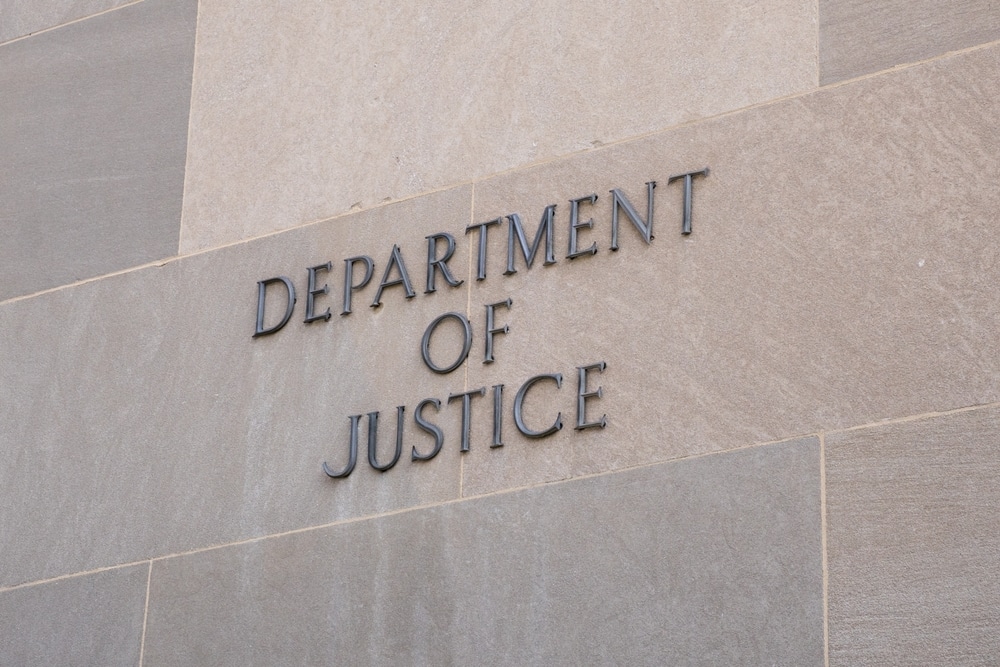
Dragonfly Capital could face serious consequences as a New York court learns that the Department of Justice (DOJ) may be contemplating criminal charges against one of its partners, Tom Schmidt, regarding investments in Tornado Cash. This unexpected development arises during the ongoing trial of Tornado Cash developer Roman Storm and prompts a critical question: can investors legally be held accountable for the actions of the projects they support?
Legal Spotlight on Tom Schmidt
Tom Schmidt, mentioned in court by the prosecutor, has implications of potential charges hovering around him. Although these comments were quickly sealed, the implications were clear: Schmidt remains under scrutiny despite not having been charged. Such attention towards a venture capitalist is uncommon, particularly when they are not intimately involved in daily operations.
 DOJ Pressure on Dragonfly
Source: Shutterstock
DOJ Pressure on Dragonfly
Source: Shutterstock
Internal Emails in Focus
The DOJ’s probe intensified after internal emails surfaced, revealing that in 2020, Dragonfly was discussing compliance strategies with Tornado Cash’s developers, including Know Your Customer (KYC) measures. These emails may serve dual purposes: affirming Dragonfly’s awareness of regulatory challenges while also implying they understood the accompanying risks yet proceeded regardless. Schmidt opted not to testify and invoked his Fifth Amendment rights.
Defiance from Dragonfly Leadership
Haseeb Qureshi, a fellow managing partner at Dragonfly, publicly denounced the possibility of criminal charges as ludicrous, stating they had sought legal counsel before their investments. He emphasized that they do not manage operations within Tornado Cash nor facilitate any money laundering activities. Furthermore, he asserted the firm’s cooperation with authorities over the past year.
Investor Accountability and Legal Precedents
The potential for legal action against venture capitalists could redefine the legal landscape within the crypto industry. An impending precedent may discourage investors from backing projects that gamble with regulatory compliance, deterring them from engaging with even neutral technologies.
Upcoming Outcomes
At this juncture, Tom Schmidt remains uncharged, but should the DOJ pursue actions against him, it could signify a significant shift in accountability in the crypto realm. Investors may need to reevaluate their involvement and funding strategies moving forward, recognizing that relationships with developing projects like Tornado Cash could entangle them in potential legal ramifications.
“Is this another phase where all this organization will start going after crypto companies? It absolutely makes no sense for DOJ to act like this. That is bitter nonsense.” — danny (@he3is_) July 25, 2025
Summary of Key Points
- The DOJ may consider criminal charges against Dragonfly’s Schmidt regarding Tornado Cash.
- Internal communications indicate that Dragonfly was aware of compliance issues.
- Schmidt has chosen not to testify, restricting defense options.
- Qureshi labeled the possibility of VC charges as absurd, asserting they followed legal counsel.
- Should these charges occur, they could establish new legal expectations for investors regarding the activities of projects they finance.
For more cryptocurrency news, visit 99Bitcoins.


